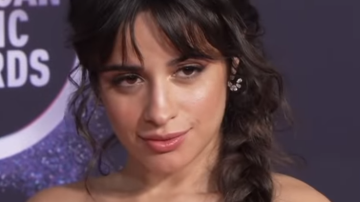Camila Cabello Gets Real About Living With Obsessive-Compulsive Disorder
Mental health is a topic that’s still not discussed enough within the Latino community

Photo: Wikimedia Commons/cosmopolitanuk
Mental health is a topic that’s still not discussed enough within the Latino community. But quite a few of our stars have been making tremendous efforts to break the stigma associated with mental disorders, including Camila Cabello. The Cuban-American singer has opened up before about her anxiety struggles. But in her June Cosmopolitan U.K. cover story, she shares about living with obsessive-compulsive disorder for the first time.
“OCD is weird. I laugh about it now,” she said. “Everybody has different ways of handling stress. And, for me, if I get really stressed thinking about something, I’ll start to have the same thought over and over again, and no matter how many times I get to the resolution, I feel like something bad is about to happen if I don’t keep thinking about it.”
https://www.instagram.com/p/BiNnATJD1Ma/?hl=en&taken-by=camila_cabello
Cabello claims she didn’t always understand what triggered her obsessive and recurring thoughts. It wasn’t until she was finally diagnosed with OCD that she was able to cope with her condition and find healthy methods to deal with it.
“I didn’t know what it was and when I found out, and [learned] how to step back from it, it made me feel so much better,” she said. “I feel so much more in control of it now. To the point where I’m just like, ‘Aha! OK, this is just my OCD. I’ll ask my mom a question for the fourth time, and she’ll be like, ‘That’s OCD. You’ve got to let it go.”
https://www.instagram.com/p/BiQKW6NjTIW/?hl=en&taken-by=camila_cabello
https://www.instagram.com/p/BiQKAGyD3hd/?hl=en&taken-by=camila_cabello
I can’t stress enough how important it is — especially for the Latinx community — to talk about mental health. Last month Pulitzer Prize-winning author Junot Díaz penned a powerful personal essay in the New Yorker about the trauma he experienced being raped by a male family friend at the age of 8. It triggered a series of mental health problems, including depression which followed him into his adult life and ruined numerous romantic relationships. The Dominican-American writer admitted that it wasn’t until he finally decided to seek therapy in recent years that he was truly able to heal.
Last month, Mariah Carey gave an interview in People about her own personal struggles with mental illness. She admitted to having Bipolar II and was first diagnosed when she was hospitalized back in 2001. But like Díaz, Carey took years to finally accept the diagnosis and only recently started to seek treatment.
Society is finally recognizing the crucial importance of mental health and understanding that the only way to move forward with it is to seek help. The Latinx community in particular, still associates mental illness with weakness or locura. According to the National Alliance on Mental Illness, only 20% of Latinxs who exhibit symptoms of psychological disorders actually talk to their doctor about it and only 10% actually seek psychiatric help.
But these brave individuals are not only fighting these oppressive stigmas but proving to folks that yes, you can live a normal life even with a mental disorder. Accepting it, talking about it, and seeking treatment is key.
Seeing someone like Camila Cabello opening up about living with obsessive-compulsive disorder is such an important message for young Latinxs to hear. It’s these kinds of testimonials that really make all the difference.

















